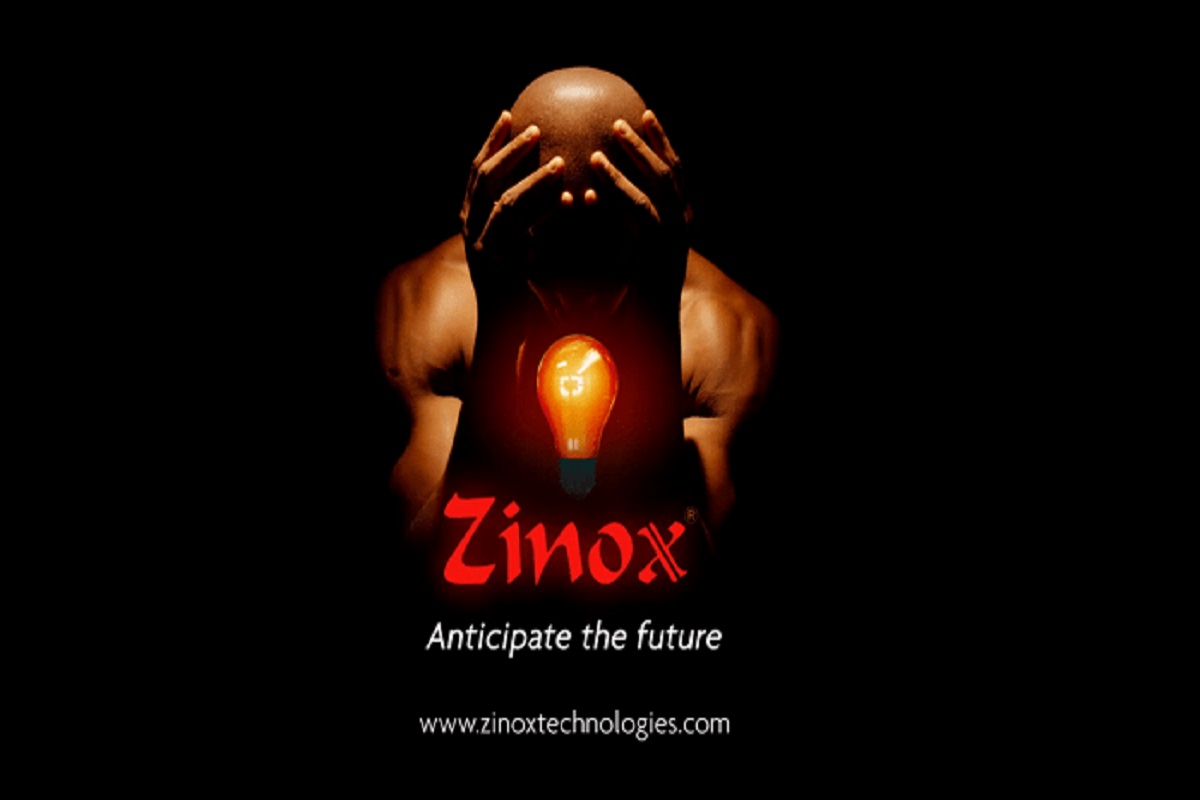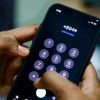By Ayodele Adigun
It was a weather-friendly Tuesday morning on October 9, 2001 at Eko Hotel and Suites in Lagos. History was made in Nigeria. Zinox, a wholly indigenous tech brand, was launched with many firsts and unique features. The brainchild of Forbes Best of Africa’s Tech Icon, Dr. Leo Stan Ekeh, it had the blessings of the then President Olusegun Obasanjo, an African statesman of peerless courage.
The event was attended by dignitaries from both the public and private sectors, diplomats and representatives of multinational computer brands.
The then Vice President Atiku Abubakar was Special Guest of Honour, while President of the Senate at that time, Rt. Hon. Anyim Pius Anyim, was Chairman of the occasion. Asiwaju Bola Ahmed Tinubu, then Governor of Lagos State, was chief host. Lagos was on lockdown literally, from the Island to the mainland as many governors, ministers, senators and members of the National Assembly, top corporate moguls, the leadership of the different labour unions, led by Adam Oshiomhole, then President of the Nigeria Labour Congress, were in attendance.
Beyond the razzmatazz of the colourful launch, Zinox more than justified the confidence Obasanjo reposed in Ekeh and the brand. It did not just transform into a formidable African brand, it scored many firsts, a salute to the legendary innovative entrepreneurial skill of Ekeh and his team and a testament to the outstanding leadership clairvoyance of Obasanjo. It is safe to say that in Zinox, Obasanjo saw the future.
After the launch, Obasanjo invited the management to Aso Rock and endorsed the Zinox brand as a national pride. It was no surprise that Obasanjo branded Ekeh: “Icon of Hope,” on October 1, 2002, as a role model to future Nigerian digital entrepreneurs, a fitting cap for an exemplar of the true Nigerian spirit of chutzpah, excellence, innovation, humility and integrity.
True, President Obasanjo achieved a lot in the ICT ecosystem from the introduction of the GSM genre of telephony via one of the most transparent mobile digital auctions administered by Dr. Ernest Ndukwe, to the creation of several indigenous computer assembly plants. But it was obvious that Zinox brand and its promoter, Ekeh, occupied a huge space in the President’s heart. Obasanjo boldly flaunted the Zinox brand, travelling the world with it, not just as a user but as a national brand and pride and was never shy to show it to other world leaders that Nigerians can also produce computers.
In one of his books, Obasanjo is a prolific writer, it has to be said, he celebrated Ekeh as a model for Nigerian youths. He topped the presidential adulation for Ekeh with the Officer of the Order of the Federal Republic, one of the high-ranking honours of the Federal Republic of Nigeria. Obasanjo never hid his admiration for Ekeh or his pride in his accomplishments as an indigenous player with global clout. On one occasion when President Obasanjo was hosting the nation’s captains of industry at State House, he singled out Ekeh and openly prayed for him, showering him with presidential blessings and publicly affirming his positive impact on Nigerian youths as a man who is living the Nigerian dream with hard work.
On account of the reliability of the Zinox brand and Obasanjo’s matchless sense of patriotism, he directed all Ministries, Departments and Agencies (MDAs) to standardise on Zinox and equivalent indigenous brands. This gave a spur to the growth of the Zinox brand and it became the preferred brand in the industry among public and private sector officials.
Zinox at 23 is beyond a celebration of an African brand. It is a celebration of uniqueness, doggedness, resilience and entrepreneurial majesty of an African who dared the digital nerds of the advanced economies and succeeded in creating digital mills in and across Africa. But more significantly, Ekeh singlehandedly turned global attention to Nigeria.
And just by Ekeh’s stroke of genius, Zinox scored many firsts. The first internationally certified indigenous computer brand in West Africa and the first computer brand in the world to incorporate the Naira sign (N) on its keyboard. First Original Equipment Manufacturer in sub-Saharan Africa to receive Microsoft Windows Hardware Quality Lab Certification; first Microsoft Prime Production Online Automation Partner in Sub-Saharan Africa with the OA Version 3.0; first Intel Premium Partner; first OEM in West Africa to attain the ISO 9001-2015 Certification; first to acquire the Google Mobile Application Distribution Agreement in West Africa; first OEM in Nigeria to introduce renewable energy and lifestyle products and attaining the status of Intel Platinum Partner in sub-Saharan Africa.
In 23 years, Zinox has become one of a kind, unique in name, quality, global competitiveness and readiness for the market. The high-profile stature of its launch said it all. Zinox is truly like no other indigenous brand.
Atiku, a retired Customs Officer, widely travelled businessman and nationalist, underscored the seriousness of the Zinox brand at the launch. He said: “I have been in both public and private sector. I have travelled widely and have witnessed the launch of products and services across the world but nowhere in the world have I seen a product launch of this magnitude and type. Zinox has just made a huge marketing statement out of Nigeria that would be heard in the rest of Africa and around the globe.”
Atiku gushed as he addressed the enraptured and sufficiently excited audience. An elated Atiku spoke glowingly about the Zinox project, describing it as a perfect example of backward integration which sits well with the Federal Government policy of looking inward to boost the nation’s primary sector. He saluted Ekeh and his team for their ingenuity and tech-savvy showmanship.
An excited Oshiomhole, who launched the “Computerise Nigeria Project”, a social project at the event by Zinox meant to democratise the ownership of computers to the unreached and under-reached, described Ekeh as a “digital militant”.
A good 23 years after, Atiku deserves to be called a master of clairvoyance. As he predicted 23 years ago, Zinox’s influence has spread across Africa and beyond.
The public presentation of Zinox range of products was beyond a product launch. It was a loud statement on the sovereignty of Nigeria. In the 21st century, no nation is truly sovereign without her home-grown tech identity and sufficiency. Ekeh sings this as his abiding song: the need to create a truly Nigerian IT identity.
Ekeh is a serial digital disruptor, an incurable challenger of status quo. And Zinox is a product of both personal determination and patriotism. It was born to break protocol and discard stereotype. It answered the question: Can anything good come out of Nigeria?
Ekeh says with a sense of national pride and self-satisfaction: “We showed that in Nigeria, it’s possible to create technology that is smart, competitive and stands shoulder to shoulder with any of its kind across the globe. We went a step further in domesticating the technology behind Zinox. We conceptualised and built into the systems stabilizers and surge protectors to take care of our peculiar challenges of irregular electricity supply and the problems associated with switching from Alternating Current (AC – national grid) to Direct Current (DC-generators). What gives me joy above monetary reward is that today when our children hear about Zinox, they have a sense of self-belief because they have been to our plant and they now know there’s nothing so special about the computer and the technology behind it.”
So far, Zinox has proven both competence and capacity at home and other parts of Africa. It was the preferred technology that powered several mega projects including the 8th All Africa Games codenamed COJA 2003; the 18th Commonwealth Heads of Government Meeting held in Nigeria in 2003; All-Africa University Games held in Bauchi in 2004; and 7th Ordinary Session of the Assembly of the Africa Union held in The Gambia in 2006. It has also undertaken critical interventions by transforming the Nigeria and Guinea Bissau electoral systems from analogue to digital. The conduct of Nigeria general elections in 2007 and 2011 is a good example. Zinox has also fully provided the technology for the postponed national census.
A quintessential family man, Ekeh has stayed deep-rooted in the ICT space. His wife, Lady Chioma Ekeh, a mathematician and chartered accountant, oversees the biggest tech distribution company in sub-Sahara Africa, TD Africa. His first son, Prince Nnamdi Ekeh, aka The Prince of Konga, with MBA from Oxford, leads Konga, the ecommerce giant, which he acquired through his company, Yudala, in one of the most ambitious and seamless acquisitions in Africa’s tech history.
His first daughter, Gozy Ajogun, nee Ekeh, an alumnus of London School of Economics, oversees Task Systems, an ICT solutions firm under the Zinox Group. T second daughter, Chidalu Ekeh, with Masters in Digital Marketing from Imperial College, London, is a Fintech whiz, while his other two younger sons also play in the tech space.
Ekeh has built a digital family rooted in ICT. He has added digital value to Africa, but the best of them all is the gift of Zinox, for which the nation is grateful.
. Adigun, an Associate Professor of Mechatronics, writes from Lagos.
![]()





























































